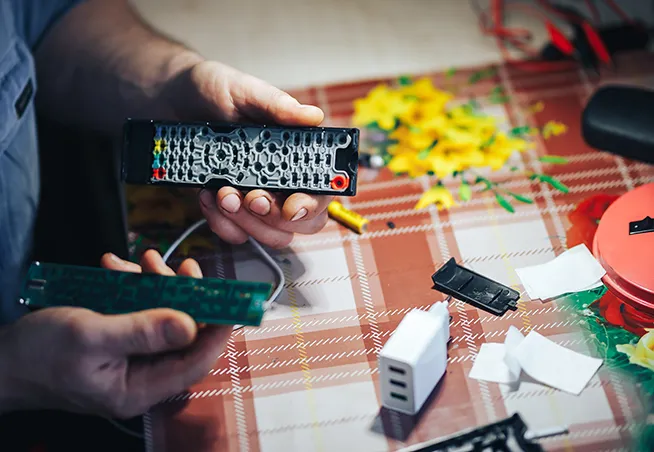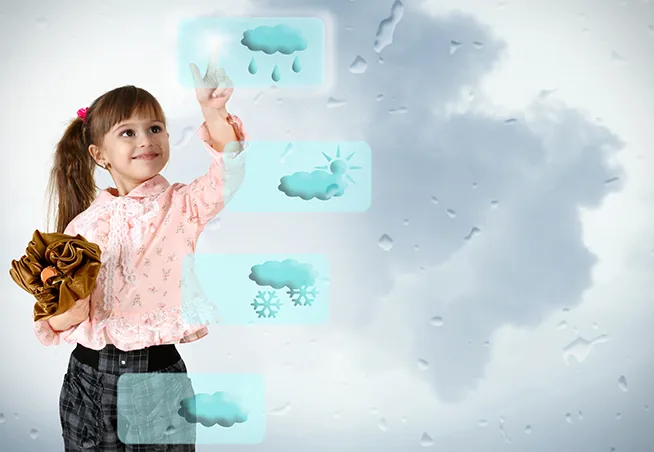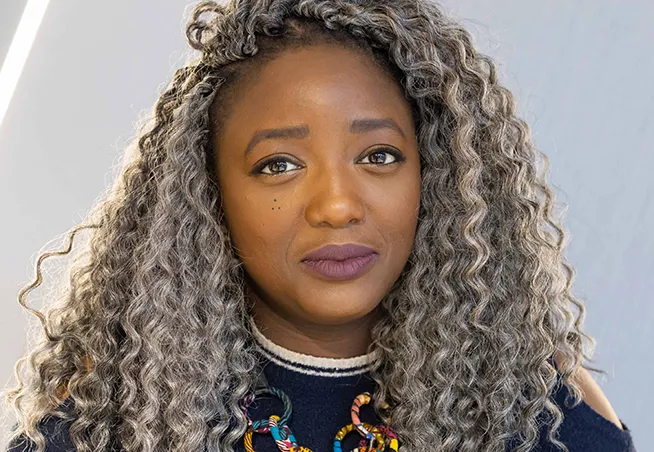Anne-Marie Imafidon, CEO Stemettes
As a child, Anne-Marie wanted to be a weather forecaster and was always taking things apart, whether it was her computer, the TV remote or VCR players! This natural curiosity and love of STEM led her to be the CEO of Stemettes where she now helps young girls get into STEM careers that they will love!
Age: 31
Job title: CEO, (Podcast Host, Board Member)
Company employed by: Stemettes (Women Tech Charge)
When you were a child, what did you dream you’d be when you grew up?
Apparently I wanted to be a weather lady. Then at 13, after doing a careers questionnaire, I decided on Management Consultant.
What is the biggest impact your work will or could have in the future?
At the very least, the biggest impact will be on thousands or millions of young women and nonbinary people who end up working in STEM jobs they love. On the grander scale, my work could mean we don’t live in dystopia, but have brilliant innovations that solve longstanding problems & don’t create new ones.
What excites you most about STEM?
The creativity of it all. We can literally dream something up, then create it. That's so amazingly exciting.
What do you love about your job? What would you change?
I love the young people I get to interact with in my job. I also love that my team and I are able to impact lives on a bigger level than we anticipate. I would change the amount of time spent trying to get organisations to fund the very necessary work that we do.
What gives you the most job satisfaction?
We have a slack channel called #stories filled with stories from young people on our programmes, Stemettes alumnae & sometimes parents and volunteers. And the #winning part of the Stemette Society. There’s so many brilliant things that Stemettes achieve. It’s daily inspiration for me.
What does a typical day at work involve?
Haha. What does typical mean? A typical day is me on a virtual stage in the morning, followed by meetings with the Stemettes team, followed by time writing documents and researching things. It hopefully involves no email at all.






What’s the most unexpected thing about your job?
The volume of emails I get from the most random of places assuming I’ll do random things like model, judge competitions and work for free. I’m only human! I can’t do all the things all of the time!
Did you have any role models when you were younger? What inspired you to do the job you’re doing now?
Yes! Tim Berners-Lee was my role model growing up. He’s a British Physicist who changed the world, and that’s what I wanted to do – create my equivalent of the World Wide Web. I was inspired to do the job I’m doing now after hearing a keynote by Nora Denzel at the Grace Hopper Celebration of Computing in 2012.
Any influential toys during childhood?
No – although I was obsessed with taking things apart. VCR players, Pens, Computers…nothing was safe.
Your favourite subjects at school?
Geography (and Maths).
Qualifications (school/college/university):
- Masters in Mathematics and Computing from Oxford University.
- DSc & DUnivs from the Open University, Glasgow Caledonian University, Kent University and Bristol University.
Your reason for choosing this career?
We should do what we can to make sure the right tech is being built, before it’s too late. Also, it’s fun helping people.
Tell me about your career path to date?
After I graduated I worked in the Technology department at an investment bank, working my way up the ranks. Then I started Stemettes as a side project and it’s grown to the point that I went full-time 2 years in and haven’t been able to look back. Now I host a podcast for the Evening Standard, keynote regularly around the world, and am a Board Member for various organisations.
If you could have any job what would it be? How does it differ from what you’re doing?
I would be a TV Commissioner. There’s so much more we should be seeing in our media – so many stories to tell.
Your advice to a young person considering a career in STEM?
Find a tribe – you don’t have to do any of this alone. If it’s Stemettes, if it’s another organisation, if it’s a network you set up yourself, do STEM with others.
